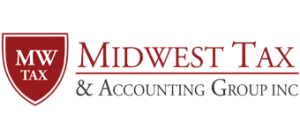IN THIS ISSUE:
Answers to Common Tax Questions
Your Turn! New and Classic Board Games
The New World of Bank Reconciliations
Get Your Contractor or Employee Classification Right!
Tax challenges can be VERY expensive
Answers to Common Tax Questions
 With the April 15 tax filing deadline right around the corner, here are answers to some common tax questions.
With the April 15 tax filing deadline right around the corner, here are answers to some common tax questions.
![]() When will I get my refund? The pandemic and additional stimulus payments will, in all probability, delay refund payments. But as of now here are the old wait times to receive your refund.
When will I get my refund? The pandemic and additional stimulus payments will, in all probability, delay refund payments. But as of now here are the old wait times to receive your refund.
- E-file return with a direct deposit – 1 to 3 weeks
- E-file return with a mailed check – 1 month
- Paper file return with a direct deposit – 3 weeks
- Paper file return with a mailed check – 2 months
NOTE: If you want exact information on the status of YOUR refund go to www.irs.gov/refund and follow their instructions.
![]() What’s the most common delay in completing a tax return? Missing items! W-2 and 1099 forms are some of the most common tax documents to go missing. If you have multiple jobs, whether full-time or part-time, you’ll be getting multiple documents in the mail. It’s easy to lose track of all these documents if you don’t have one place you put them once received.
What’s the most common delay in completing a tax return? Missing items! W-2 and 1099 forms are some of the most common tax documents to go missing. If you have multiple jobs, whether full-time or part-time, you’ll be getting multiple documents in the mail. It’s easy to lose track of all these documents if you don’t have one place you put them once received.
![]() Can I still get a stimulus payment? If you’re still waiting on either the 2020 or 2021 stimulus payment, file your 2020 tax return and claim the Recovery Rebate Credit. This is why it is important to keep track of any payments you receive from the government during the year. You will need them to account for any missing payments or underpayments.
Can I still get a stimulus payment? If you’re still waiting on either the 2020 or 2021 stimulus payment, file your 2020 tax return and claim the Recovery Rebate Credit. This is why it is important to keep track of any payments you receive from the government during the year. You will need them to account for any missing payments or underpayments.
![]() Can I correct a tax form that has an incorrect dollar amount? If you receive a tax document with incorrect information, contact the company that issued the document and try to get it fixed immediately. If you can’t get a corrected form right away, include both the incorrect form and the correct dollar amount when turning in your tax documents to have your return prepared.
Can I correct a tax form that has an incorrect dollar amount? If you receive a tax document with incorrect information, contact the company that issued the document and try to get it fixed immediately. If you can’t get a corrected form right away, include both the incorrect form and the correct dollar amount when turning in your tax documents to have your return prepared.
![]() Can I deduct charitable contributions if I don’t itemize? In 2020 you can claim a $300 charitable contribution deduction regardless of whether or not you itemize your deductions. If you missed this window of this above-the-line donation in 2020, never fear as it is also available in 2021 with an increased limit to $600 for married couples. So save those donation receipts!
Can I deduct charitable contributions if I don’t itemize? In 2020 you can claim a $300 charitable contribution deduction regardless of whether or not you itemize your deductions. If you missed this window of this above-the-line donation in 2020, never fear as it is also available in 2021 with an increased limit to $600 for married couples. So save those donation receipts!
![]() Is this taxable? While there are always exceptions, the most common taxable items that are questioned include unemployment benefits and withdrawals from non-Roth retirement accounts. Some things, like Social Security, are often, but not always, taxable.
Is this taxable? While there are always exceptions, the most common taxable items that are questioned include unemployment benefits and withdrawals from non-Roth retirement accounts. Some things, like Social Security, are often, but not always, taxable.
Your Turn! New and Classic Board Games
Board games are making a comeback during the pandemic as everyone looks to stay engaged during more stay-at-home time. Here are four of the most popular board games of all time and a corresponding board game similar to the classic game that you and your family may enjoy trying.

![]() Chess. The most popular board game of all time got an unexpected boost from Netflix’s critically acclaimed series “The Queen’s Gambit.” After the show was released in October 2020, sales of chess sets soared 125 percent, according to a report from the New York Times. While you can easily find instructions how to play chess on the internet, most people learn how to play after being taught by someone else.
Chess. The most popular board game of all time got an unexpected boost from Netflix’s critically acclaimed series “The Queen’s Gambit.” After the show was released in October 2020, sales of chess sets soared 125 percent, according to a report from the New York Times. While you can easily find instructions how to play chess on the internet, most people learn how to play after being taught by someone else.
Quantity sold: 3 million copies every year in the U.S. alone.
If you like chess, you may want to try: Onitama. In Onitama, there is a primary game board and pieces which can be moved, but only in certain ways. It is a strategy board game based on the different styles of Japanese martial arts.
![]() Monopoly. Is it no wonder that a game where the objective is to force your fellow players into bankruptcy is one of the most popular of all time? Parker Brothers introduced this game in 1934 from The Landlord’s game that was created by Elizabeth Philips in 1903.
Monopoly. Is it no wonder that a game where the objective is to force your fellow players into bankruptcy is one of the most popular of all time? Parker Brothers introduced this game in 1934 from The Landlord’s game that was created by Elizabeth Philips in 1903.
Quantity sold: 300 million
If you like Monopoly, you may want to try: Railroad Ink. This game lets each player build a railroad network. While the premise of the game is pretty simple, it can be very challenging and unpredictable.
![]() Scrabble. Vocabularies around the world have been put to the test by Scrabble, which has been in existence since 1938. Invented by New York City architect Alfred Mosher Butts in 1933, the game was first called Lexico, then changed to Criss-Cross Words. Mosher’s friend and future business partner James Brunot invented the name Scrabble in the late 1930s.
Scrabble. Vocabularies around the world have been put to the test by Scrabble, which has been in existence since 1938. Invented by New York City architect Alfred Mosher Butts in 1933, the game was first called Lexico, then changed to Criss-Cross Words. Mosher’s friend and future business partner James Brunot invented the name Scrabble in the late 1930s.
Quantity sold: 150 million
If you like Scrabble, you may want to try: Quiddler. A great game for large families, Quiddler can accommodate up to 10 players. Each player receives a handful of cards with letters on them with the goal of making as many words as possible from the cards you have. Unlike Scrabble, two-letter words are actually allowed with Quiddler!
![]() Candy Land. A retired schoolteacher named Eleanor Abbott created a board game in 1948 that could become a distraction for child patients fighting polio at a San Diego hospital. Abbott submitted the game to Milton Bradley after it became extremely popular.
Candy Land. A retired schoolteacher named Eleanor Abbott created a board game in 1948 that could become a distraction for child patients fighting polio at a San Diego hospital. Abbott submitted the game to Milton Bradley after it became extremely popular.
Quantity sold: 50 million
If you like Candy Land, you may want to try: Sequence for Kids. Play an animal card that you’re holding and set down a chip on the corresponding animal on the board. The first player with four chips in a row wins. You may also notice your kids thinking a couple turns ahead for the first time while playing this board game, as they start to sharpen their strategy skills.
The New World of Bank Reconciliations
 Here’s a look at the new world of bank reconciliations and some ideas to use to ensure your bank account is accurate.
Here’s a look at the new world of bank reconciliations and some ideas to use to ensure your bank account is accurate.
The bank reconciliation purpose
In a nutshell, a bank reconciliation ensures your account is accurate. This is done by comparing all your activity with what the bank is reporting.
The importance of timely bank reconciliations
There are several reasons for conducting these account reviews on a timely basis:
![]() Catch a mistake by the bank. Banks make mistakes. Reconciliations can help you catch these bank errors. And errors are more common with digital payment systems…often a small transposition or machine misread of a number can create a payment error.
Catch a mistake by the bank. Banks make mistakes. Reconciliations can help you catch these bank errors. And errors are more common with digital payment systems…often a small transposition or machine misread of a number can create a payment error.
![]() Catch a mistake by you. Yep, it’s difficult envisioning making an error, but that happens, too. It is easy to record the wrong payment amount. The only way to catch this is to look at your account and compare it to what you think you paid.
Catch a mistake by you. Yep, it’s difficult envisioning making an error, but that happens, too. It is easy to record the wrong payment amount. The only way to catch this is to look at your account and compare it to what you think you paid.
![]() Catch unauthorized use. If someone hacks into your mobile phone’s payment app and spends $20 of your money, how would you ever find out? Reconciliations uncover fraudulent activity you may have missed.
Catch unauthorized use. If someone hacks into your mobile phone’s payment app and spends $20 of your money, how would you ever find out? Reconciliations uncover fraudulent activity you may have missed.
![]() Properly monitor automatic payments. With monthly payments automatically coming out of your account, it is easy to forget to account for these payments and have less in your account than you think you do. Timely reconciliations also help you identify ongoing payments that should be discontinued.
Properly monitor automatic payments. With monthly payments automatically coming out of your account, it is easy to forget to account for these payments and have less in your account than you think you do. Timely reconciliations also help you identify ongoing payments that should be discontinued.
Tips for reconciling your accounts
Here are some tips for reconciling in the new world of banking.
- Reconcile every week (or every day!). Gone are the days when you need to wait for your monthly bank statement in the mail to reconcile your account. Use your bank’s online tools to reconcile once a week or even once a day. This will help identify problems as they occur and is especially important in identifying possible hacking or theft.
- Use your favorite app to capture your spending. Secure online applications are now replacing the traditional check register. You’ll still need to be disciplined to use the online tool when you spend money, so look for an application that is easy to record your spending.
- Combine reconciling with budgeting. Use your reconciliations as an opportunity to become better with budgeting your money. Use reporting functions to help classify your deposits and payments. Then compare them with what you think they should be. This moves the discipline from simple reconciliation to a more planned approach to comparing your budget to actual spending.
The way bank reconciliations are done may have changed over the past 20 years, but the vital role they play in maintaining your financial health will never disappear.
Get Your Contractor or Employee Classification Right!
Tax challenges can be VERY expensive
As a small business owner, you may face the issue of whether to classify workers as employees or as independent contractors.
 Classifying your workers as independent contractors generally saves you money. That’s because you avoid paying employment taxes and benefits on their behalf.
Classifying your workers as independent contractors generally saves you money. That’s because you avoid paying employment taxes and benefits on their behalf.
If the IRS determines that you misclassified your employees as contractors, you could end up paying all of the employment taxes and benefits that would have been paid over the years. Depending on the size of your work force, the cost to your business could be substantial.
In determining whether the person providing a service is an employee or an independent contractor, all information that provides evidence of the degree of control and independence must be considered. There are three primary categories of control and independence that the IRS considers when determining if a worker is a contractor or an employee:
![]() Behavioral. Does the company control or have the right to control what the worker does and how the worker does his or her job? If yes, the worker is an employee.
Behavioral. Does the company control or have the right to control what the worker does and how the worker does his or her job? If yes, the worker is an employee.
![]() Financial. Are the business aspects of the worker’s job controlled by the payer? This includes things like how the worker is paid, whether expenses are reimbursed and whether the employer provides tools and supplies. If yes, the worker is an employee.
Financial. Are the business aspects of the worker’s job controlled by the payer? This includes things like how the worker is paid, whether expenses are reimbursed and whether the employer provides tools and supplies. If yes, the worker is an employee.
![]() Type of relationship. Are there written contracts or employee-type benefits? If contracts are involved, the worker may be a contractor. If benefits such as a pension plan, insurance and vacation pay are made available, the worker most likely is an employee.
Type of relationship. Are there written contracts or employee-type benefits? If contracts are involved, the worker may be a contractor. If benefits such as a pension plan, insurance and vacation pay are made available, the worker most likely is an employee.
Deciding whether a worker is a contractor or employee can get complicated. And remember that there are significant financial consequences for incorrectly classifying a worker. Please call if you have a question about how to classify one or more of your employees.




